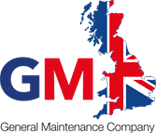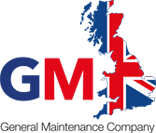Property maintenance for landlords isn’t just a matter of making the properties visually appealing to potential tenants, there are also legal requirements which must be adhered to. Landlords must ensure properties are safe and compliant with industry legislations, and in this blog GMC share our advice on how to do so.
Legally required property tests & checks
Gas Safety
If properties have any gas appliances (both portable and permanent) provided by the landlord you must ensure that annual gas safety checks are carried out. A copy of the gas safety record must be given to new tenants before they move in, and have been carried out no more than 12 months previously. Further implications of not adhering to gas safety regulations can be found on the health and safety executive website.
Energy performance certificates (EPCs)
Domestic landlords across the UK are legally required to provide an EPC to all new and prospective tenants. The energy performance certificate must be produced by an accredited energy surveyor, and highlights the energy efficiency of a property, and the environmental impact rating of a property. Fortunately, an EPC lasts for 10 years, providing no major renovation work is carried out on the property.
Smoke and Carbon Monoxide Alarms
Since October 2015, Landlords have been legally required to ensure that all their rental properties are installed with fully working smoke and Carbon Monoxide alarms. Make sure you have alarms not only installed but that they’re tested at frequent intervals to help avoid any serious legal implications or jeopardising your tenants safety.
Recommended property tests & checks
Electrical Installation Condition Report (EICR)
An EICR is one of the most straightforward and efficient way of demonstrating that an electrical installation is safe. It is highly recommended that with rental properties an EICR is carried out every five years. Although EICRs are not legally required, they are great for ensuring properties within a portfolio are electrically safe.
PAT and electrical appliance testing
Portable appliance (PAT) tests are a great way of ensuring the safety of any portable electrical appliances provided by residential and commercial Landlords or relocation companies. Although there are no legal requirements for PAT testing, dangerous electrical appliances can have legal and safety implications. Therefore, it is highly beneficial for landlords to either carry out regular pat tests, or inspect appliances regularly to identify any damage to cords, cables or plugs.
Specialist property reports
When it comes to property maintenance it’s essential to identify when professionals are needed, and when properties in your portfolio require some extra TLC. Should you or your tenants suspect something is wrong with your property it is essential that issues are correctly assessed in order to identify the right course of action. Areas which are of particular concern are signs of damp or dry rot, damage to the roof or overall property structure, issues with drainage, signs of asbestos or invasive plants which can damage the structure of the building.
At GMC we’re here to help you
With our years of expertise within the property industry we can help you stay on top of legal requirements, recommended regular tests and specialist property reports. Your allocated account handler will remind you when tests are due, and let you know if there are any issues of concern within your properties. With our nationwide property maintenance contractors we can offer UK wide coverage only one phone call away.
To find out more about GMC’s property maintenance services contact the team, or download our brochure.

 Welcome To The General Maintenance Company
Welcome To The General Maintenance Company


Sorry, the comment form is closed at this time.